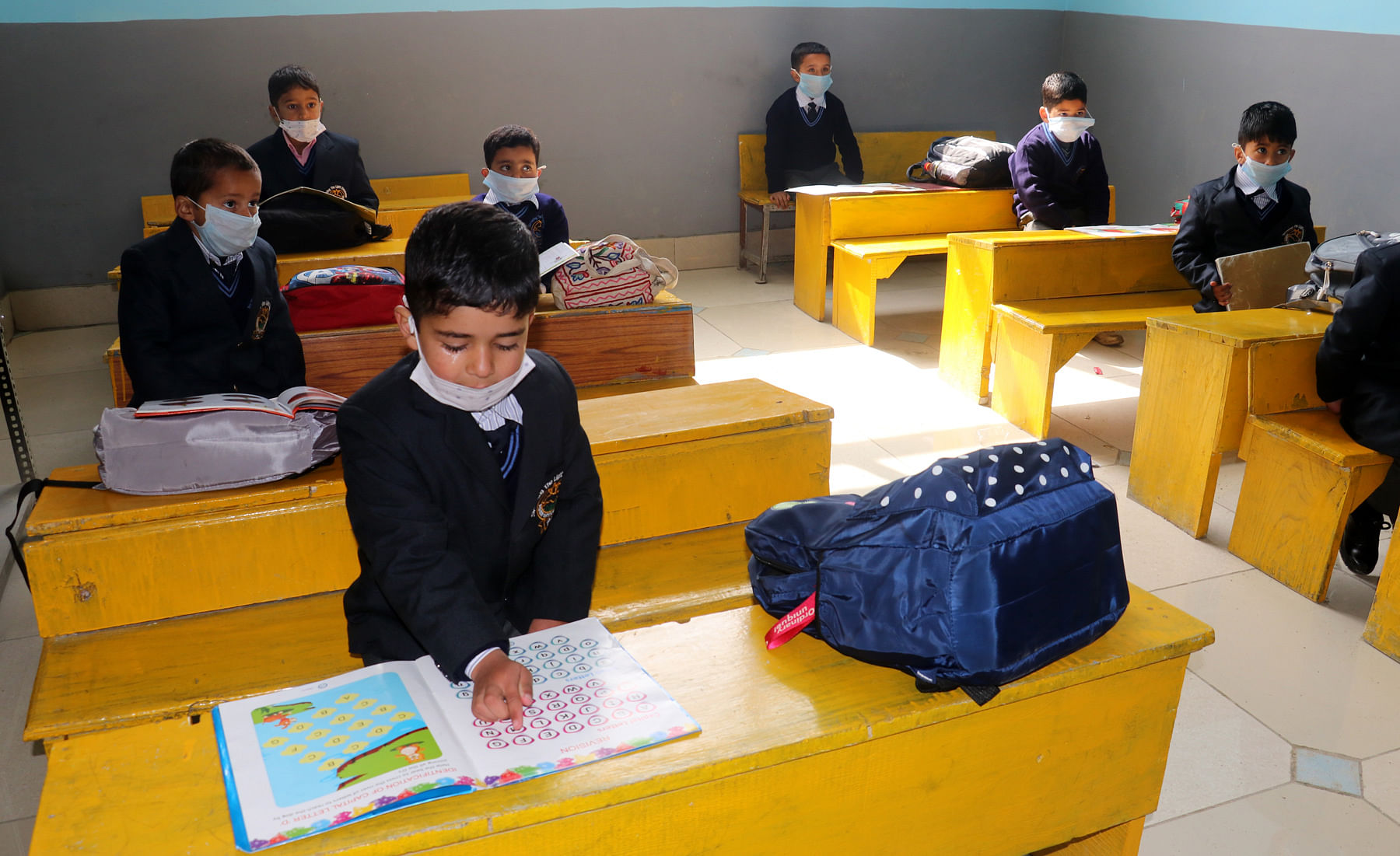Almost two years have passed since the Right to Education (RTE) Act-2009 became applicable to J&K after abrogation of Article 370.
The applicability of the Act in J&K had given many hopes to children form weaker sections to get education from top notch private schools which otherwise remain out of bounds for these children of lesser god.
The applicability and the implementation of RTE Act in J&K was supposed to open up opportunities for the students, and end the monopoly of private schools as under the RTE Act-2009, the private schools have to keep 25 percent reservations for students belonging to the Economically Weaker Section (EWS).
The Act became applicable in J&K in October 2019 and it was expected that all the private schools will keep the 25 percent reserved quota for the children from EWS from academic session 2020. But the J&K government miserably failed to implement the Act in private schools for unknown reasons.
While the private schools continued their monopoly, the government also succumbed to the pressure mounted by the management of top notch private schools which resulted in poor implementation of the Act in the private schools.
Apart from its failure to strictly implement the RTE Act to ensure free admission to the children from EWS, the government is still struggling to control fleecing of private schools done by charging donations, arbitrary annual charges and other fees excluding the tuition fees of the students.
The government has issued several orders and circular instructions to the private schools for not collecting capitation fee or donation from parents but most of the schools continue to charge it through illegal means and do not even bother to provide a receipt to the parents for the money charged.
As per the Act, the private schools have to provide 25 percent free admission to children from EWS and the expenditure will be borne by the government and will reimburse the money into the accounts of the respective school management of the schools.
While the private schools are creating hurdles in strict implementation of the Act, the government is equally responsible for giving upper hand to the private schools to sabotage the Act.
The rule says that the expenditure on the 25 percent reserved quota enrolled in private schools has to be reimbursed by the school education department exactly according to the expenditure incurred on the education of each student enrolled in the government schools.
This is the reason why the government is at the back-foot because the funds pumped in by the Government of India (GoI) under various centrally sponsored schemes for education of children in government schools is much more than what is charged from parents by the private schools.
Despite the passage of two years, the government is yet to come up with an order and rules for private schools to reserve 25 percent admission in private schools under reserved quota.
Now, as the private schools are likely to start the admission process for kindergarten classes from September month, all eyes are on the J&K government to implement the Act before the commencement of new admission of students in private schools for the 2021-22 academic session.
But the government has failed to implement the Act in the J&K. The Act should have been implemented from the last two academic sessions but for want of rules, its implementation continues to get delayed.
The delay in implementation of RTE Act in J&K has exposed the government that apparently surrendered before the top notch private schools.
The department has framed all the rules and guidelines as per the RTE Act-2009 which is awaiting approval from administration for its implementation but the same is being delayed for unknown reasons.
It is also a fact that post abrogation of Article 370, the J&K government implemented all other Central rules and Acts. But there is an inordinate delay in the proper implementation of the RTE Act. This reveals how the private schools have the upper hand over the administration and continue to call the shots.
Given the sequence of events, it seems the government will not succeed in getting the Act implemented in J&K and private schools will continue with the same old system.
Forget about the implementation of the Act, the government is yet to streamline the admission system by getting it implemented in a synchronized manner so that parents would get a better choice for their kid.
Every school releases a selection list on different dates and gives only two to three days to parents to pay the donation and the admission fee. In this process, the parents are forced to choose any school which issues the selection list prior to other institutions, or else lose the money if they later decide to opt for their own preference.
As the admission process in private schools is scheduled to start from September, the government should not buy more time for framing the policies which later remain confined to only papers.
The government should on priority issue rules and regulation for private schools with regard to the implementation of RTE Act-2009 where under the schools are supposed to keep 25 percent seats reserved for children from EWS. Also the admission calendar should be followed in a synchronized manner as well.
From the past months, the government has tightened noose around the private schools for violating orders issued for collection of fees during the COVID-129 lockdown period. The government should continue the same approach and ensure implementation of RTE Act in private schools as well so that the private schools do not remain out of bounds for these children from EWS.
We can keep our hopes high that the government will streamline the admission process in private schools from the upcoming academic session viz-a-viz reservation for children from EWS, uniform admission calendar and no capitation fees or arbitrary annual charges are collected from the parents.







